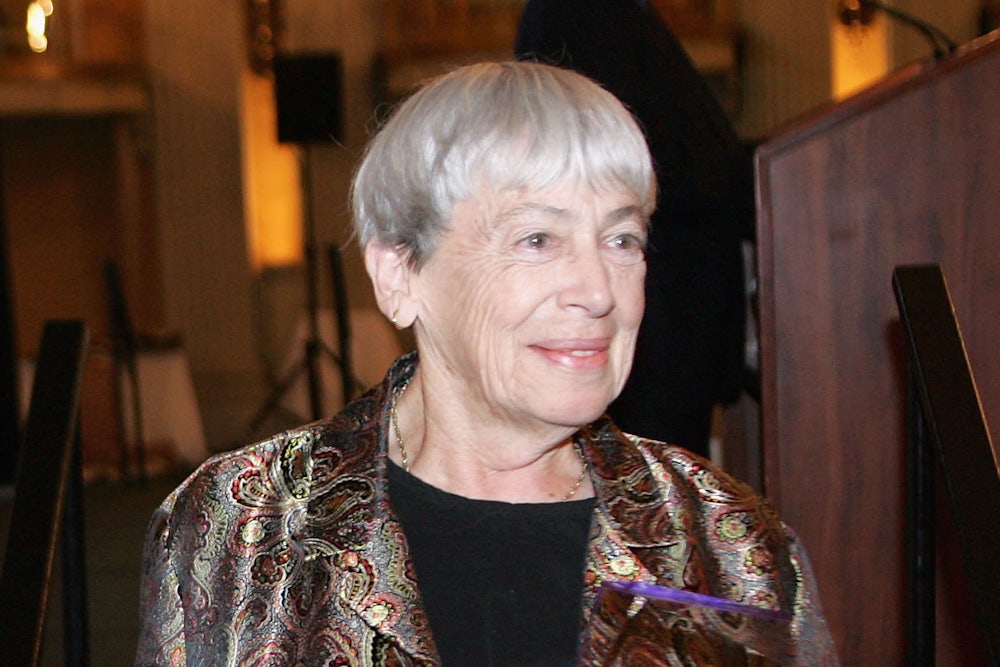The beloved writer died today at age 88. She was a pioneer of science fiction and fantasy, writing in those genres at a time when few women did and even fewer did so to acclaim. In doing so she changed the trajectory of literature as a whole, bringing those genres into mainstream respectability and acclaim.
Her innovations profoundly changed fantasy writing. She brought an anthropologist’s stance to her work, due partly to the influence of her father, the anthropologist Alfred Louis Kroeber. She built vivid and detailed worlds, notable for their departures from a tired fantasy trope: the European mirror world, evident in the books of J.R.R. Tolkien and George R.R. Martin.
Aside from her Orsinian Tales, which were set in a fictional small European country, Le Guin mostly looked beyond the continent for material. Her famous Earthsea books were set in a multicultural archipelago. Her heroes had dark skin. Her science fiction occurred in other contexts entirely, worlds where genders were fluid and socialist exiles lived on the moon. She also discarded the genre’s florid dialogue and sword-and-sorcery themes for terser language and more complex character development.
She was particularly adept at capturing the growing pains of adolescence. In A Wizard of Earthsea, her gifted protagonist, Ged, suffers from a near-fatal case of hubris that unleashes havoc on the world. The book is about redemption and self-realization, and the growing burdens of responsibility. I read it when I was eleven, and it changed me in ways no book ever had until I read its sequel, The Tombs of Atuan, and I was changed all over again.
In her later work, she used science fiction to tell deeply political stories. The Word for World is Forest is a condemnation of colonialism, a theme she frequently revisited in the Hainish cycle. The Eye of the Heron and The Dispossessed examine uprising and class conflict. The Left Hand of Darkness subverted gender. All of these books are relevant now, and they were all ahead of their time.
But Le Guin didn’t write political sermons. She simply understood that stories are intrinsically political, that being in the world is political. As she said in a speech to the National Book Awards in 2014:
Hard times are coming, when we’ll be wanting the voices of writers who can see alternatives to how we live now, can see through our fear-stricken society and its obsessive technologies to other ways of being, and even imagine real grounds for hope. We’ll need writers who can remember freedom—poets, visionaries—realists of a larger reality.
Books aren’t just commodities; the profit motive is often in conflict with the aims of art. We live in capitalism, its power seems inescapable—but then, so did the divine right of kings. Any human power can be resisted and changed by human beings. Resistance and change often begin in art. Very often in our art, the art of words.
Novelists are liars, and Le Guin was one of the most honest liars who ever lived. She could communicate terror and beauty in the same spare sentence, and create worlds that lived inside you. She was a writer who remembered freedom and our larger reality, and devoted her life to them. “I have given my love to what is worthy of love,” the character Arren tells Ged in The Farthest Shore. “Is that not the kingdom and the unperishing spring?”
